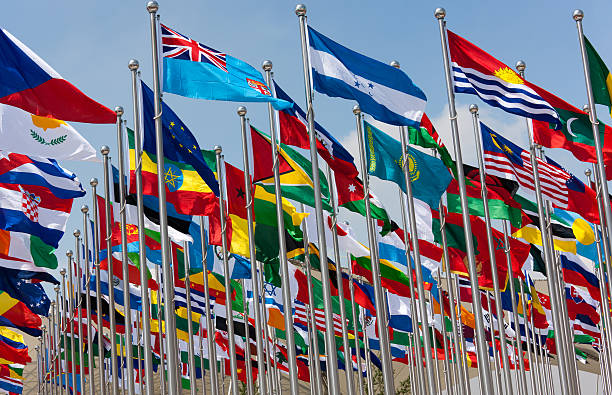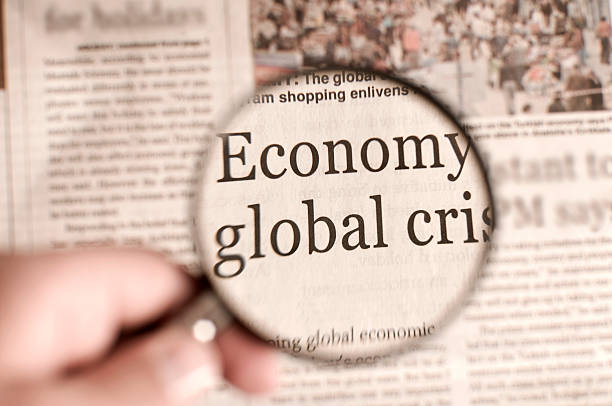A global finance org. typically refers to a large financial institution that operates across multiple countries and regions, providing a wide range of financial services to individuals, businesses, and governments. These organizations often have a significant impact on the global economy, influencing global financial markets and playing a critical role in international trade and investment.
Examples of global finance org. include multinational banks such as JPMorgan Chase, Citigroup, and HSBC, investment firms such as BlackRock and Fidelity, and insurance companies such as AIG and Allianz. These organizations offer a variety of financial products and services, including banking and investment services, insurance products, asset management, and trading and underwriting services.
Global finance org. are subject to complex regulatory frameworks, both at the national and international levels, to ensure financial stability and protect consumers and investors. They also play a crucial role in promoting economic development and providing access to capital in developing countries.
RELATED
The Role of Global Finance Org. in the Global Economy

Global finance org. play a critical role in the global economy, providing essential financial infrastructure and services that facilitate economic activity, promote economic growth, and support international trade and investment.
One of the primary roles of global finance org. is to provide access to capital, allowing individuals, businesses, and governments to finance their activities and investments. Through a range of financial products and services, such as loans, credit lines, and investment products, global finance org. provide the funds that fuel economic growth and development.
In addition to providing access to capital, global finance organizations also facilitate the flow of capital across borders, allowing for international trade and investment. By providing trade financing, foreign exchange services, and cross-border payment systems, global finance organizations enable businesses to engage in international commerce and expand their operations across borders.
Global finance org. also play a critical role in promoting financial stability, both domestically and internationally. Through their regulatory compliance and risk management practices, global finance organizations help to prevent financial crises and maintain the integrity of financial markets. They also support financial inclusion by providing access to financial services to underserved populations and promoting financial literacy and education.
Global finance org. are major employers and contribute significantly to the global economy through their investments and philanthropic activities. Through their investment in research and development, innovation, and infrastructure, they help to create jobs and promote economic growth and development.
In general, the role of global financial org. in the global economy is multifaceted, and their contributions are essential to supporting economic growth and development, promoting financial stability, and facilitating international trade and investment.
Types of Global Finance Org.: Banks, Investment Firms, and Insurance Companies

Global finance org. can be broadly classified into three main types: banks, investment firms, and insurance companies. Here’s an overview of each type:
- Banks: Banks are financial institutions that accept deposits from customers and provide a range of financial services, such as loans, credit cards, mortgages, and other banking products. Banks can be further classified into retail banks, which serve individual customers, and commercial banks, which provide services to businesses and governments. Some of the largest global banks include JPMorgan Chase, HSBC, and Bank of America.
- Investment Firms: Investment firms, also known as asset management firms, manage and invest funds on behalf of individuals, institutions, and governments. These firms can manage a range of assets, including stocks, bonds, real estate, and other investment products. Some of the largest investment firms include BlackRock, Vanguard, and Fidelity.
- Insurance Companies: Insurance companies offer a range of insurance products, including life insurance, health insurance, and property and casualty insurance. These products are designed to protect individuals, businesses, and governments from financial losses due to unforeseen events, such as accidents, illness, or natural disasters. Some of the largest global insurance companies include Allianz, AIG, and Prudential.
Top Global Finance Org. by Assets and Revenues

Here are some of the top global finance org. ranked by assets and revenues:
Assets:
- Industrial and Commercial Bank of China (ICBC): $4.05 trillion
- China Construction Bank: $3.38 trillion
- Agricultural Bank of China: $3.24 trillion
- Mitsubishi UFJ Financial Group (Japan): $2.95 trillion
- JPMorgan Chase (US): $2.82 trillion
- HSBC (UK): $2.72 trillion
- Bank of China: $2.61 trillion
- BNP Paribas (France): $2.57 trillion
- Bank of America (US): $2.38 trillion
- Wells Fargo (US): $1.97 trillion
Revenues:
- Industrial and Commercial Bank of China (ICBC): $178.8 billion
- China Construction Bank: $147.2 billion
- Agricultural Bank of China: $125.7 billion
- JPMorgan Chase (US): $118.9 billion
- Bank of China: $113.9 billion
- Wells Fargo (US): $101.3 billion
- Mitsubishi UFJ Financial Group (Japan): $83.9 billion
- Bank of America (US): $83.7 billion
- Citigroup (US): $74.3 billion
- HSBC (UK): $67.2 billion
Challenges and Risks Facing Global Finance Org.

Global finance organizations face a range of challenges and risks that can impact their operations and financial stability. Some of the key challenges and risks facing these organizations include:
- Regulatory compliance: Global finance organizations are subject to a complex and evolving regulatory landscape, which can be challenging to navigate. Non-compliance with regulations can result in fines, legal action, and reputational damage.
- Cybersecurity threats: As global finance organizations increasingly rely on digital technologies to conduct their operations, they face a growing risk of cybersecurity threats such as data breaches, hacking, and ransomware attacks.
- Economic volatility: Changes in global economic conditions, such as recessions or market fluctuations, can impact the financial performance of global finance organizations and expose them to risks such as credit and liquidity risks.
- Geopolitical risks: Political instability, trade tensions, and other geopolitical risks can impact global finance organizations by creating uncertainty and increasing risk.
- Reputation risk: The reputation of global finance organizations can be impacted by a range of factors, including misconduct, fraud, and unethical behavior.
- Competition: The global finance industry is highly competitive, with new entrants and disruptive technologies constantly emerging. This can make it challenging for established organizations to maintain their market position and profitability.
- Environmental, social, and governance (ESG) risks: Increasingly, global finance organizations are being held accountable for their impact on environmental and social issues, as well as their governance practices. Failure to address these risks can result in reputational damage and financial loss.
